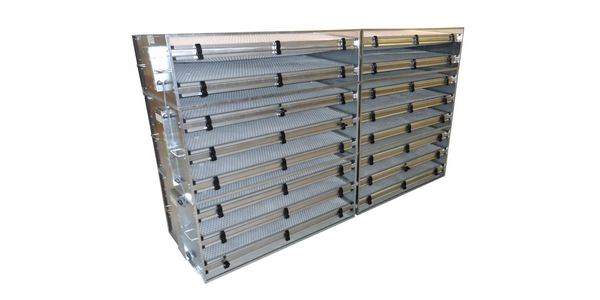Making the Case for Green
Geothermal heat pumps offer customers attractive eco-friendly option
By Robert Hoffmann
With rising costs and the world’s attention to the environment and climate change growing sharper, the gap between conventional HVAC equipment and newer, more eco-friendly options narrows.
As commercial building owners decide on upgrading or replacing old HVAC systems, HVAC professionals can help these customers consider budget, building design, air quality, energy efficiency, system lifespan and local climate. The long-term benefits offset the initial installation cost of geothermal HVAC solutions in the minds of universities, businesses and governments, alike, where before they might have deferred to the traditional systems they knew.
Considering energy use
Since the goal of a commercial HVAC system is the same as a residential one – to maintain high indoor air quality at 72 F with a humidity level of 40-60% – it is essential to help customers choose the right system.
According to the U.S. Green Building Council, green engineering helps accomplish this by considering energy and water use, IAQ, materials during all stages of construction, and daily operations. The result – commercial properties exceed energy codes and standards because they are more efficient, automated and smarter.
HVAC systems account for about 15% of the electricity of a commercial building’s energy, and more than 30% of that is lost in the process of operating traditional heating and cooling systems. When considering these statistics, as well as the fact that 10% of all U.S. greenhouse gas emissions come from burning fossil fuels, looking for alternative, eco-friendly solutions starts to make more sense.
Heat pumps present the best option in most climates for commercial properties.
The U.S. Department of Energy touts geothermal heat pumps as the most efficient, eco-friendly and cost-effective option available because they move heat from the ground, where the temperature stays consistent year-round to a building (or reversed for cooling) rather than generating it from another fuel source. These systems can heat or cool at a moment’s notice and in multiple areas of a commercial building, such as an office. Some even operate as hot water heaters by gathering the heat waste to warm water and other areas of the building as it cools another.
To illustrate efficiency, consider this: Geothermal heat pumps move 4.1 watts of heat energy for every watt of electricity used, whereas electric HVAC systems stand at a 1:1 ratio. That means using a geothermal heat pump turns into massive savings on utilities each month, which is just one more reason they are gaining popularity.
Global search for green solutions
People worldwide are searching for greener solutions. Case in point: engineers in Australia rolled out a thermally driven AC system that eliminates electricity costs by using solar panels as its power source.
According to Yale Climate Connections, research reported that “roughly 100 U.S. colleges and universities have installed geothermal systems on their campus,” including Boston University’s Center for Computing and Data Sciences (source: https://yaleclimateconnections.org/2022/08/geothermal-heating-and-cooling-renewable-energys-hidden-gem/). This geometric building, set to open in late 2022, will receive 90% of its heating and cooling from 31 geothermal boreholes deep beneath its ground floor.
Steve Smith, CEO of Enertech Global, observed the geothermal market’s growth, touting the help of federal tax credits and goals set by states, cities and local municipalities with their eyes on the future and renewable, energy-efficient structures.
If working to win over customers considering a geothermal HVAC system, keep the above in mind and reference the following resources:
- Environmental Considerations for Geothermal HVAC Systems
- Federal Tax Credits: Requirements for Geothermal Heat Pumps
- Energy Star Certified Geothermal Heat Pumps
- Office of Energy Efficiency & Renewable Energy Report titled GeoVision: Harnessing the Heat Beneath Our Feet
Robert Hoffmann, P.E., is founder and CEO at Hoffmann Brothers.


